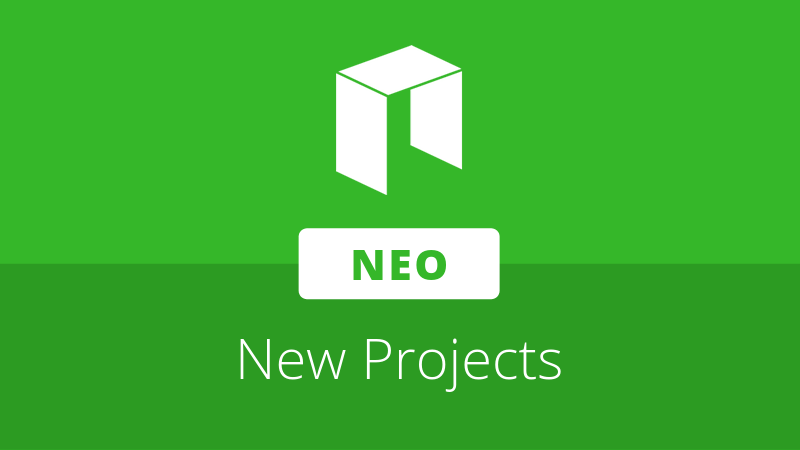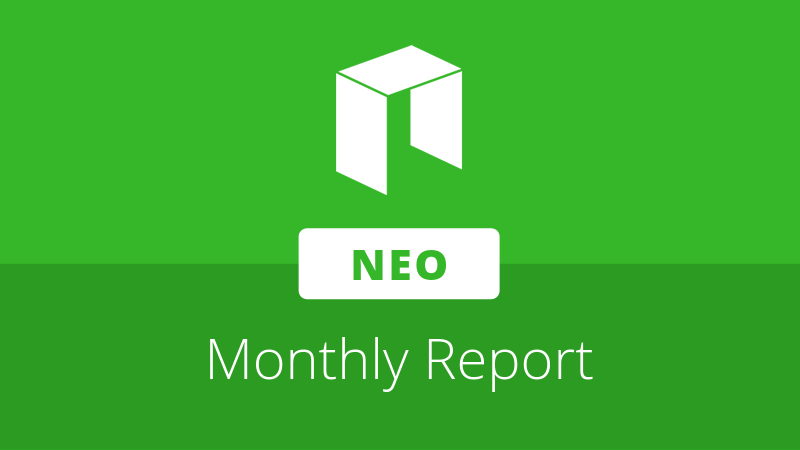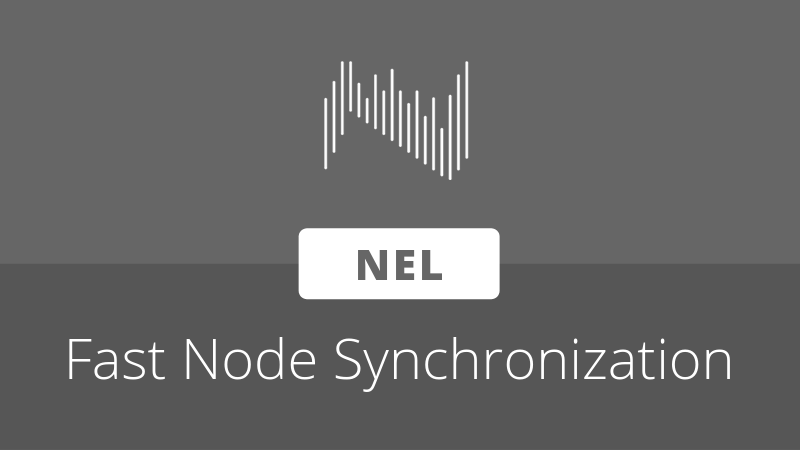
In February, many project teams made the trip to Seattle to attend NEO DevCon 2019. Amongst the attendees was a variety of new ecosystem projects, some of who were invited to give presentations, others who simply wished to network and engage with the development community.
NEO News Today spoke with some of these projects in the weeks following DevCon, including Archon, Barrel Protocol, Cruzeo, InnoDT, Novem, and Yezcoin. Varied in their approaches to fundraising, industries and applications, each project outlined its purpose and reasons for choosing to build with NEO technologies.
Cruzeo
Cruzeo is seeking to develop a decentralized protocol that enables cheaper and fairer marketplaces. According to co-founder Doris Schiöberg, “Cruzeo is for both non-technical users and developers, who wish to build at-scale decentralized marketplaces.”
At the core of its architecture, Cruzeo aims to “keep everything as modular as possible” in case any piece needs to be replaced in the future. Examples of such modules include payment functionality, and user registration and log-in modules. Up until DevCon, the team focused on solidifying the foundation for its public facing API to mitigate the need for future changes or updates.
Cruzeo co-founder Carlo Mannino states the project selected NEO because of the blockchain’s performance and “non-anarchism.” Mannino went on to say NEO aims to follow “rules and [create] new ones where necessary without limiting the possibilities the technology offers.”
With regards to NEO’s short-term future, Cruzeo leadership is excited about the development of NeoFS and changes to the NEO smart contracts. Mannino states the team has had to come up with “adventurous solutions to work around the limits of storing data inside smart contracts. NeoFS will improve this situation tremendously.”
NEO News Today’s DevCon interview with Cruzeo co-founders Carlo Mannino and Doris Schiöberg.
Yezcoin
Yezcoin seeks to offer services as “a hybrid cryptocurrency exchange that combines the speed of a centralized exchange with the world-class security of a decentralized exchange.” Yezcoin focuses on KYC/AML compliance and is developing to be a “biometric ready” platform. Such examples of biometric identification include voice, fingerprint, facial, and retinal scans.
Yezcoin CEO Mongkol Thitithamasak stated the project selected to build on NEO because its “delegated Byzantine Fault Tolerance (dBFT) consensus has proven to be environmentally friendly, efficient and secure.”
To protect users, Yezcoin seeks to maintain an address book of well known international scam artists and malicious accounts, so users don’t accidentally send funds to those accounts. This philosophy is primarily why Yezcoin selected the NEO blockchain to conduct its token sale.
Thitithamasak said he believes Yezcoin’s and NEO’s philosophy intertwine as they seek to ”create a safe environment inside of the smart economy with ID Verification and ID Management so that bad actors can be identified and their roles are limited.”
Looking forward, Thitithamasak is most excited about NeoFS and layer 2 APIs as they will help solve complex situations through secure sharing, fast transacting, and intensive computing solutions.
The team recently developed the YezWallet, YezLogin, and is testing its YezIdentity features.
NEO News Today’s DevCon interview with Yezcoin founder and chief scientist Mongkol Thitithamasak.
InnoDT
InnoDT was inspired by a public token sale gone awry, where emails were distributed containing an incorrect wallet address for ICO contributions. To increase cryptocurrency visibility and traceability, InnoDT’s purpose is to create intuitive visualizations that trace and monitor transaction behaviours, as well as map digital identities.
According to InnoDT CEO Alek Tan, the project was designed to “create a certain level of trust, so that users can feel safe when they transact with each other.”
In 2018, NEO Global Capital (NGC) approached InnoDT to provide tracing, mapping, and API tools to “improve the NEO ecosystem.” Specifically, InnoDT is tagging and flagging transactions that occur within the NEO ecosystem.
Tagging identifies user or company wallets and monitors their movements to understand which transactions go to which entity. Flagging transactions allows users to request notifications of certain activities when they occur.
InnoDT is an equity company that must turn a profit for its investors. Examples of customers include public blockchains, exchanges, auditors, and developers. InnoDT offers its analytical services to entities on a subscription basis.
Services typically include transactional studies without any personally identifiable information (PII) included in the analysis. According to Tan, such data may include basic behaviors behind questionable transactions, transactions affecting how the market is moving, whale addresses, and addresses sending micro-transactions, among others.
Looking forward, Tan said he is following the development of NeoFS distributed storage solution, and how InnoDT can leverage that technology.
Alek Tan’s DevCon presentation.
Archon
Archon is a blockchain-agnostic platform developing a cross-chain “decentralized file storage system designed to achieve the performance and reliability of centralized solutions.” The platform focuses on technology and UX, as well as interoperability with various smart contract platforms. Archon co-founder Eric Wang stated, “NEO is the first blockchain the team is using to develop the platform.”
The Archon team created “a storage platform that can use NEO smart contracts to interact with Archon’s native blockchain specially designed for file storage.” From the usability standpoint, Wang states the team “prioritizes user experience in viewing these files without even understanding anything about blockchain.”
When inquired about a NEO component that’s most critical to Archon, Wang highlighted NEO’s “zero to low transaction fees.” He went on to say, “storage transactions generally are small transactions with higher volume. Until strong layer two solutions are developed, low fees make storage transactions on-chain much more palatable.”
Looking forward, Wang is most intrigued by the Internet Resource Access project, as he believes “a well designed decentralized oracle is important for many dApp use cases.”
NEO News Today’s DevCon interview with Archon chief science officer Eric Wang.
Eric Wang’s DevCon presentation.
Novem
Novem, a gold storage and asset management company, was represented at DevCon by CTO Christoph Klocker. In February 2019, Klocker was interviewed by NEO News Today to discuss the project and its roadmap.
Novem is an Austrian-based company incorporated in Lichtenstein. The company founders, Wolfgang Schmid, and Mario Schober have years of experience in the international metals industry. To “make gold accessible to everyone,” Novem aims to establish a product that serves as an amalgamation of physical gold and blockchain.
The project uses two tokens in its ecosystem – the Novem token (NVM) and the 999.9 token (NNN). In NNT’s correspondence with Klocker, he conveyed the team is getting closer to overcoming its last regulatory obstacle.
Klocker iterated Novem selected to build using the NEO blockchain as users can create free wallets. As NEO does not require transaction fees, Novem is able to send NNN or NVM tokens to their customers without onboarding fees or staking coins as other blockchain platforms require.
Looking forward, Klocker states they plan to use NeoFS to make audited reports of their gold supply “publicly available and [stored] it on the blockchain.”
The Novem public token sale is tentatively scheduled to occur in April 2019.
NEO News Today’s DevCon interview with Christoph Klocker.
Barrel Protocol
The Barrel Protocol team won Second Place at the NEO Amsterdam Hackathon in April 2018. Further, the project has received funding from NEO Global Capital (NGC).
Barrel Protocol is built on top of the NEO blockchain and seeks to “automate consumer data compliance using smart contracts.” Barrel aims to collect peoples “digital paper trails,” or alternative data, and remove any personally identifiable information (PII). Alternative data is “gathered from non-traditional data sources” such as financial transactions, mobile devices, public records, and the internet.
Once scrubbed of PII, this information is aggregated and becomes a dataset that can be analyzed, bought, and sold. Barrel estimates that the global data market is worth around $600 billion.
NEO News Today’s DevCon interview with Barrel Protocol founder and CEO Jonathan Meiri.







About The Author: Dylan Grabowski
Dylan is a reformed urban planner with a passion for covering the Neo ecosystem. His objective as a writer for Neo News Today is to report news in an objective, fact-based, non-sensational manner. When not behind a computer screen, he can be found in the mountains rock climbing. Find Dylan on Twitter (@GrabowskiDylan).
More posts by Dylan Grabowski